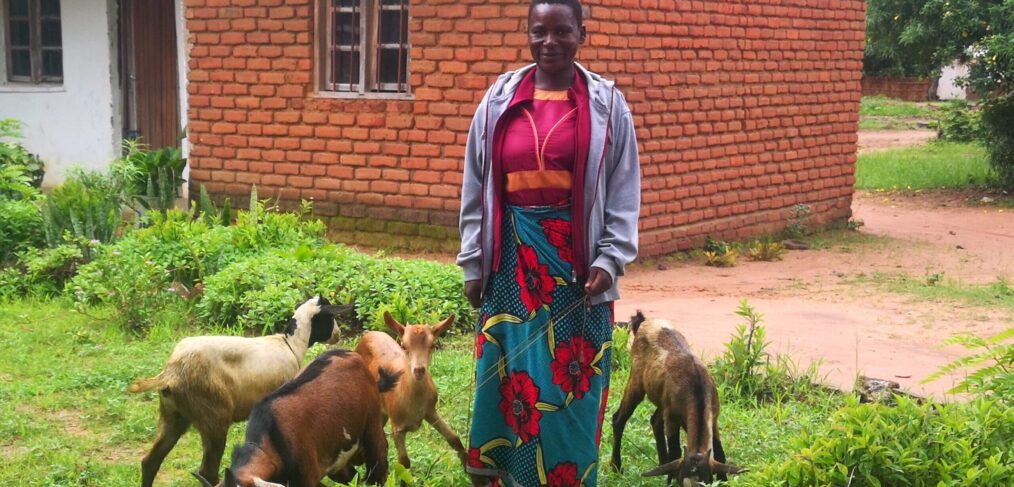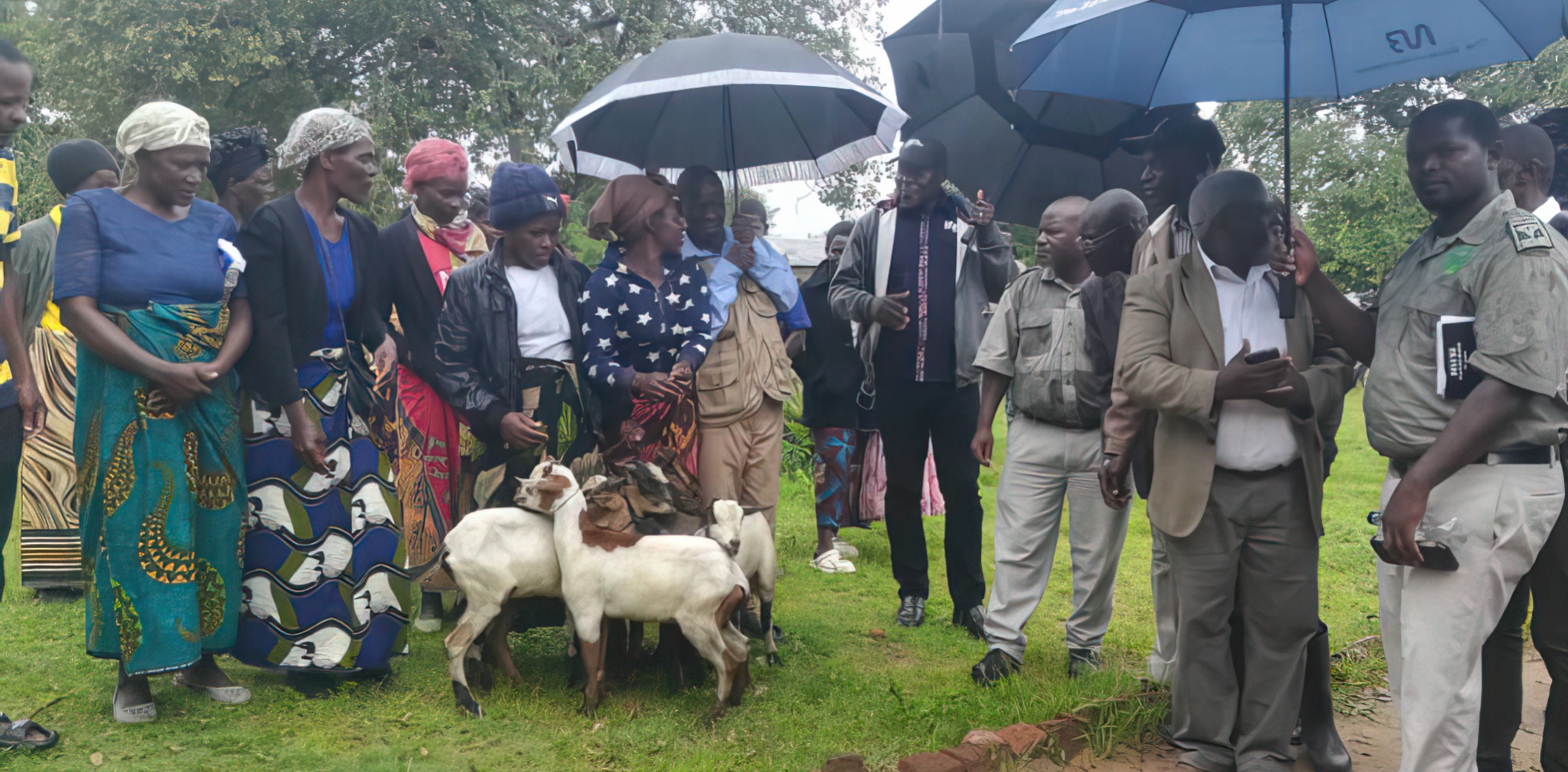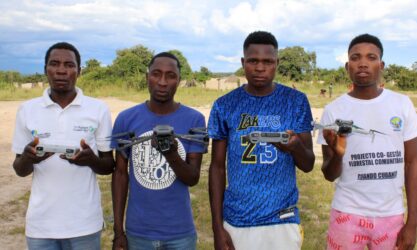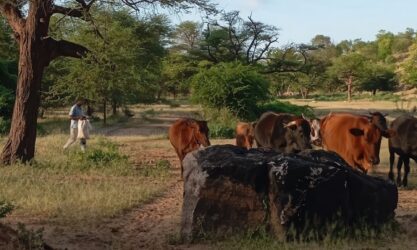
Can goats help conserve Kasungu National Park in Malawi?
Crop farmers living around Kasungu National Park now pay five times as much for a bag of synthetic fertiliser than they did five years ago. COVID-19 and the Russia-Ukraine war packed a combined punch that have left Malawians reeling. Their small fields that used to yield enough to feed the family and pay the bills are no longer productive, as soil fertility declines and rainy seasons shorten due to climate change.
The long-term use of synthetic fertiliser also carries an environmental cost, as it pollutes sources of drinking water and damages soil health. As their environment becomes increasingly hostile to life, desperate people start finding other means of survival. Those near the park will be tempted to hunt or cut down trees illegally, or extend their crop fields into the park by clearing away natural vegetation.
Park rangers trying to police these illegal activities start being viewed as the ‘bad guys’ who are preventing people from using the park’s natural resources to survive. If we continue down this road, people and parks will become competitors in an African version of Hunger Games where there can be only one winner. To change direction, we first need to find ways for people to meet their needs outside the park boundary. In the long-term, the park must become a good neighbour that provides job opportunities and other benefits to local communities.
Kasungu Wildlife Conservation for Community Development Association (KAWICCODA) is taking steps towards meeting household needs through small-scale goat farming. Goats are effectively low-maintenance converters of leaves into meat, milk and dung. The goat dung is added to equal portions of ash and maize bran (all freely available on farms), which is then mixed in with 10 kilograms of synthetic fertiliser to produce ‘Mbeya compost’.
The goat milk and meat provide an important source of protein, thus improving local diets and reducing malnutrition. Recent studies revealed that animal protein deficiency is common in the Kasungu District, with 38% of children under five years old experiencing stunted growth.
Group Village Headman Chisasa testifies to the difference goats have made: “I received five goats from KAWICCODA and they have changed everything,” he says. “They provide protein for my family, I can sell them for school fees or emergencies, and we are now making fortified compost manure. One bag of synthetic fertiliser produces five bags of compost, which costs far less and works even better!”

The Community Resilience Project, run by KAWICCODA with funding from the Biodiversity and Protected Areas Management Programme (BIOPAMA), started by giving five goats to each of the 57 households (40% of which are woman-headed) that were selected following the Ministry of Agriculture’s guidelines. After one year, each family will give five of their goats to another selected family, thus expanding the programme’s reach over time.
For Perrina Phiri, the goats represent financial flexibility: “One of my goats died, but it was replaced. Once they reproduce, I can sell some to pay school fees, use others for meat, and invest in fertiliser. They are giving us options we never had before.”
KAWICCODA board chairperson Malidadi Langa emphasises the link between these efforts and nature conservation: “By reducing poverty and teaching farmers climate-smart agriculture techniques like fortified composting, we are helping to protect Kasungu National Park and other natural resources around it. Poaching and deforestation are slowing down because families have better and safer ways to make a living.”
Conservation cannot work in a context of poverty and desperation. The livelihoods and wellbeing of people around national parks should therefore be a top priority for all conservationists. When people prosper without needing to damage their environment, protected areas will flourish.


